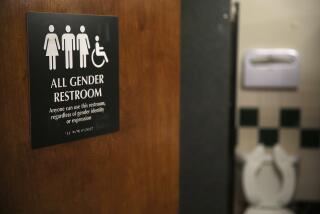Talibanâs Treatment of Women
Barbara Ehrenreichâs âVeiled Threatâ (Opinion, Nov. 4) struck a chord with me. I was in the midst of reading âNickel and Dimed,â her insightful, passionate, first-person account of the plight of the female underclass in this country when Sept. 11 happened. In the grim aftermath, I couldnât help but feel that there were connections between that important book, our national tragedy and the years-long failure of the world community--starting with the U.S.--to respond to the Talibanâs brutality against women.
One of the connections is that the feminist movement in our country, apparently, has gone on a long lunch break. Back when I was coming of age in the late â60s, women of our country marched for empowerment not just for ourselves but for our sisters around the globe. Now, as we and our daughters have become the beneficiaries of remarkable social change, with the only clear and present danger being ongoing threats to our reproductive rights, that movement has fractured. Middle-class professional women and affluent stay-at-home moms are too wrapped up in their kidsâ after-school sports, college prep and office politics to worry too much about how the janitorial help makes ends meet and, by extension, what it must be like to live in a society that denies females the basic rights to education and medical care. For the past few months, Iâve found myself asking more than once: Gloria Steinem, where are you?
Nina Stern McCullaugh
Sherman Oaks
*
We hear a lot these days about the miserable situation of women in Afghanistan, yet almost nobody mentions the situation of women in other Arab countries, such as Saudi Arabia, Kuwait, Dubai and Bahrain, which is very similar to that in Afghanistan. Are we more concerned about our enemiesâ women than about our alliesâ women?
Joshua Salik
Tucson
*
Ehrenreich is inaccurate when she says the Talibanâs mistreatment of women has âfinally been noticed.â Its mistreatment of women has been noticed for years. What has been unnoticed is its mistreatment of men. Ehrenreich herself points out that males are often conscripted as early as age 6. But it does not end there. It carries into adulthood as men are treated as either soldier-pawns or wallets. Maybe the reason we notice the misogyny but not the misandry is that we think of men the same way here in the U.S.
Marc Angelucci
Los Angeles
More to Read
Sign up for our Book Club newsletter
Get the latest news, events and more from the Los Angeles Times Book Club, and help us get L.A. reading and talking.
You may occasionally receive promotional content from the Los Angeles Times.








